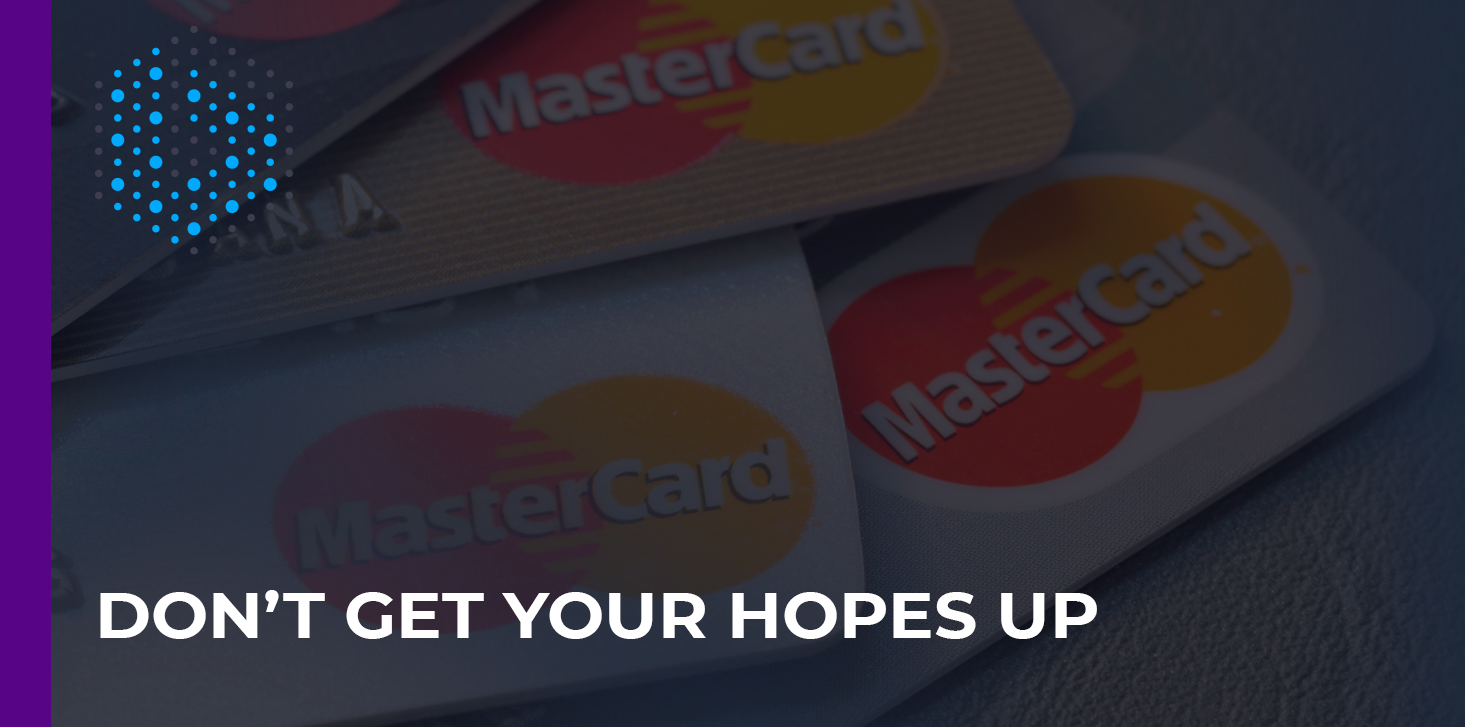Mastercard and sweet promises
The news that Mastercard will start processing cryptocurrency transactions two weeks ago was warmly received both inside and outside the crypto community. If previously the credit card issuer and the Bellerophon payment system processed crypto transactions only after converting to major currencies through several intermediary partners, this step involves actually receiving, processing and calculating transactions “first-hand”. But…
Do not get your hopes up
The new policy followed a similar statement from Visa about two weeks earlier, which spoke of the company’s growing commitment to supporting crypto payments and transitions, as well as “what Visa thinks about cryptocurrencies in general.” Other companies, from Uber to BNY Mellon and Mazzanti, have recently made crypt-friendly comments. And the news of Tesla’s Bitcoin stock, coming just a day or two before Mastercard’s announcement, had a similarly favorable effect on the digital asset market.
And it is not surprising that after the news release, the value of popular coins increased significantly.
But while acknowledging that cryptocurrencies and other digital assets are becoming an increasingly important part of the payments world, the payment giant’s management took an extremely cautious tone in explaining the move.
Although they abandoned this attempt in 2015, the company filed a patent for processing payments in Bitcoin back in 2013. In 2019, presumably in response to the return of price momentum in the asset class, they resumed the development of a cryptocurrency processing infrastructure.
But on closer inspection, the ad turns out to be nothing more than a signal. Although it is planned to start processing cryptocurrency transactions sometime in late 2021, Mastercard will require that any coins or other digital assets meet certain criteria before they are included in their processing suite. These provisions currently include the following:
- The cryptocurrency in question must provide reliable consumer protection, including the confidentiality and security of consumer information and transaction data;
- Enable all stakeholders, including financial institutions, to contribute to and benefit from their blockchain networks;
- Act in accordance with applicable laws and regulations, including anti-money laundering laws.
Even setting aside the use of such malleable terms as” stakeholders “and” requirements that are open to interpretation ” (such as whether blockchain information is sufficiently reliable and secure to be included in light of the pseudonymous nature of transactions in the chain), few if any cryptocurrencies currently, and certainly none of the most widely used and liquid, meet the giant’s criteria.
“No” to Bitcoin
The company’s executive vice-chairman, Ann Cairns, in particular, dispelled hopes that Bitcoin will become one of those cryptocurrencies that will soon be supported. She rejected the possibility of the company collaborating with the cryptocurrency king, saying that ” Bitcoin does not behave like a payment instrument. It is too unstable and requires too much time for the transaction.”
Judging by Mastercard’s strict guidelines for cryptocurrencies in need of support, it is very unlikely that any cryptocurrency currently in use (let alone any of the top ten) will be able to overcome the hurdles built by the financial giant.
Of course, as is often the case with new tools, Mastercard’s management is cautious. Officials, whether in corporate America or in government, are skeptical about what they can’t control. But this first step is nonetheless important to legitimize the cryptocurrency – how likely would Mastercard have been just five years ago?
